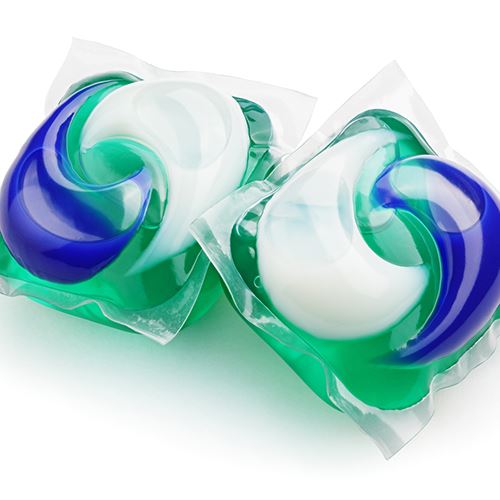While Poison Centers receive many calls each year about children getting into all kinds of laundry detergents, experts recognize that highly concentrated single-load liquid laundry detergent can cause serious harm to young children. The membrane increasing the soap is designed to dissolve when in contact with moisture, creating a risk of exposure when placed in the mouth or handled by wet hands.
Some children who have eaten the product have had excessive vomiting, wheezing, and gasping. Some get very sleepy. Some have had breathing problems serious enough to need a ventilator. There have also been reports of corneal abrasions (scratches to the eyes) when the detergent gets into a child’s eyes. There are also reports of severe outcomes related to exposures in older adults.
As of February 29, 2024, Poison Centers have managed 1,423 cases related to laundry detergent packet exposure in 2024 for children 5 and younger.

FOR THE MEDIA:
Please cite this data as “National Poison Data System, America's Poison Centers.” Any and all print, digital, social, or visual media using this data must include the: “You can reach your local Poison Center by calling the Poison Help line: 1-800-222-1222. To save the number in your mobile phone, text POISON to 301-597-7137.” Email media@PoisonCenters.org or call 703-894-1863 for more information, questions, or to submit request data.
| |
PREVENTION TIPS
-
Always keep detergent containers closed, sealed and stored up high, out of sight and reach of children.
-
If a child wants to help with the laundry, never allow them to handle a single-load laundry packet.
-
Follow the instructions on the product label.
-
Do not handle the products with wet hands.
-
Call the Poison Help line at 1-800-222-1222 immediately if you suspect a child has come in contact with this detergent.
RESOURCES
In early 2018, a trend among teenagers to intentionally ingest the packets – and upload videos of themselves doing so to various internet platforms – caused significant concern among Poison Centers. Please contact media@PoisonCenters.org to request data related to these intentional exposures.
|
/APC%20logo_2C%20with%20tagline.jpg)
 LAUNDRY DETERGENT PACKETS
LAUNDRY DETERGENT PACKETS